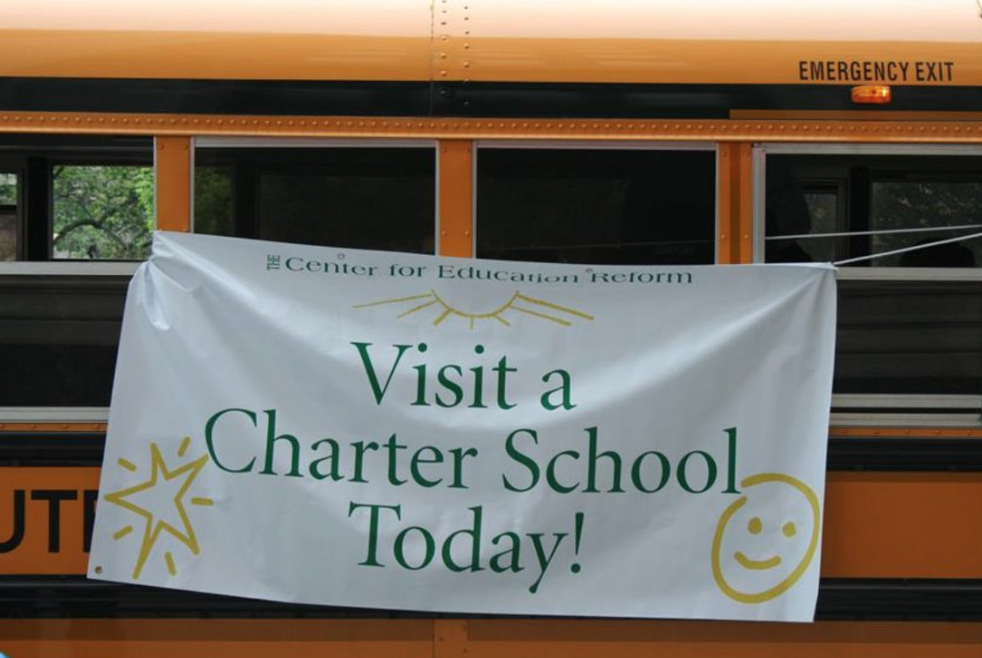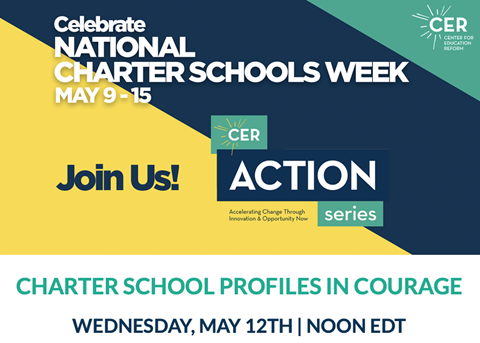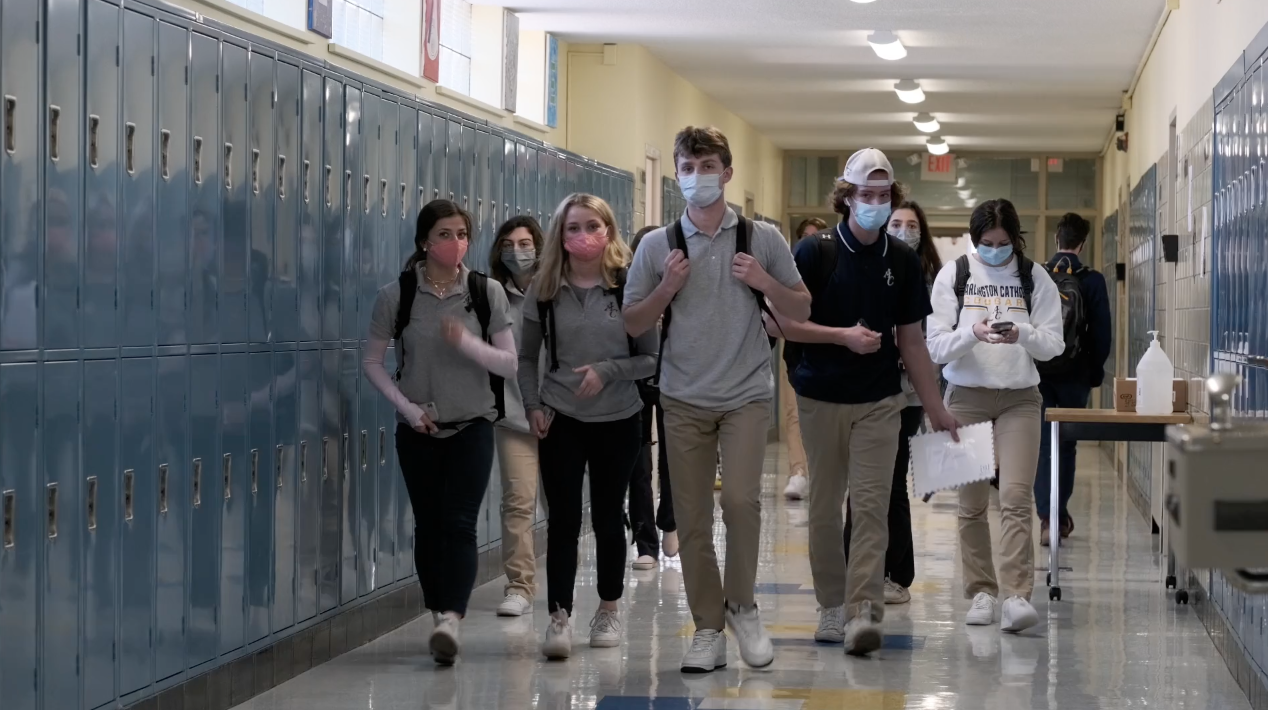
A St Patty’s Day Special Edition…Finding Rainbows...Driving out Snakes and a much needed Irish Blessing.
Opportunity Knocks...Progress to #FundFamilies (not failure)...ICYMI a glance at last week’s virtual extravaganza!
CHARTERS HELP KIDS AND DISTRICTS. Most of you won’t ever hear those words, so we’ll help you to say them. Charters – Help – Kids – AND – Districts. This in-depth study of charters’ effects on local districts makes. the unambiguous conclusion that charters improved their host districts’ finances in total revenue per pupil, total spending per pupil, local revenue per pupil, and per-pupil spending on support services. So there.
 DESTINY AND CHARTERS. The story of Destiny Jackson should be front-page news. The Philly native, who was once homeless and in foster care now has been accepted to over 50 colleges.This graduate of Belmont Charter High School epitomizes perseverance, and without finding a school that fit her perfectly, Destiny, in many ways, may have been lost.
DESTINY AND CHARTERS. The story of Destiny Jackson should be front-page news. The Philly native, who was once homeless and in foster care now has been accepted to over 50 colleges.This graduate of Belmont Charter High School epitomizes perseverance, and without finding a school that fit her perfectly, Destiny, in many ways, may have been lost.
 A CHARTER WEEK HIT. We were so grateful to have nine top leaders from a diversity of charter schools, locations and demographics join us to share their success at overcoming the odds during Covid, since Covid, and in general. From a fight in lower-income West Palm Beach that resulted in equity, to a fight in West Virginia that resulted in a new law (woot, woot!) to the reminder from DC’s own Statesmen Prep founder Shawn Hardnett that “there’s a group of kids out there who have not been served and they need us…we cannot make the mistake of resting on our laurels …we need to fight,” and so much more, you will want to run, not walk, to see this event on CER’s Action Series video page.
A CHARTER WEEK HIT. We were so grateful to have nine top leaders from a diversity of charter schools, locations and demographics join us to share their success at overcoming the odds during Covid, since Covid, and in general. From a fight in lower-income West Palm Beach that resulted in equity, to a fight in West Virginia that resulted in a new law (woot, woot!) to the reminder from DC’s own Statesmen Prep founder Shawn Hardnett that “there’s a group of kids out there who have not been served and they need us…we cannot make the mistake of resting on our laurels …we need to fight,” and so much more, you will want to run, not walk, to see this event on CER’s Action Series video page.
 BURY THE BIGOTRY OF BLAINE. It should be required reading for every citizen and would-be American. Espinoza v. Montana Dept of Revenue put the deliberately anti-Catholic, anti-religion Blaine amendments of the late 1800s on the chopping block but each state must challenge their own by law or lawsuits. Check out what South Carolina attempted, as CER’s Jeanne Allen and former Solicitor General/Kirkland & Ellis partner Paul Clement explain in The Hill.
BURY THE BIGOTRY OF BLAINE. It should be required reading for every citizen and would-be American. Espinoza v. Montana Dept of Revenue put the deliberately anti-Catholic, anti-religion Blaine amendments of the late 1800s on the chopping block but each state must challenge their own by law or lawsuits. Check out what South Carolina attempted, as CER’s Jeanne Allen and former Solicitor General/Kirkland & Ellis partner Paul Clement explain in The Hill.
THANK YOU, RANDI. More and more states are buoyed by both the freedom imparted by Espinoza (not to mention Randi Weingarten’s deceitful actions) to empower families and kids. Florida expanded private school scholarships and vouchers by $200 million. Kitty-corner on the map, Montana just expanded the tax credit for donations to fund public-school “innovative educational” programs, the national picture shows the largest expansion of school choice in U.S. history. At least 50 school choice bills have been introduced in 30 states so far, designed to create or expand vouchers, tax-credit scholarships and education savings accounts, among other measures. Follow the bouncing ball for regular updates at Edreform.com’s Parent Power Index!
In other news, a new survey found that 71% of California Black registered voters surveyed support charters. “Nearly all of California’s top majority Black public schools are actually charter schools led or founded by Black people who have used chartering to specifically create schools that are open to all and aimed at educating Black children to a level of excellence.” The power of choice.
All this progress doesn’t happen by accident. Education Opportunity and Innovation is just pure common sense, good policy and good for families. Keep speaking out, be active, challenge those who stand in the way and start your own schools or efforts. We’ve seen these head-winds before. They are not changing course. Let us know how we can help you!
 DESTINY AND CHARTERS. The story of Destiny Jackson should be front-page news. The Philly native, who was once homeless and in foster care now has been accepted to over 50 colleges.This graduate of Belmont Charter High School epitomizes perseverance, and without finding a school that fit her perfectly, Destiny, in many ways, may have been lost.
DESTINY AND CHARTERS. The story of Destiny Jackson should be front-page news. The Philly native, who was once homeless and in foster care now has been accepted to over 50 colleges.This graduate of Belmont Charter High School epitomizes perseverance, and without finding a school that fit her perfectly, Destiny, in many ways, may have been lost. A CHARTER WEEK HIT. We were so grateful to have nine top leaders from a diversity of charter schools, locations and demographics join us to share their success at overcoming the odds during Covid, since Covid, and in general. From a fight in lower-income West Palm Beach that resulted in equity, to a fight in West Virginia that resulted in a new law (woot, woot!) to the reminder from DC’s own Statesmen Prep founder Shawn Hardnett that “there’s a group of kids out there who have not been served and they need us…we cannot make the mistake of resting on our laurels …we need to fight,” and so much more, you will want to run, not walk, to see this event on CER’s Action Series video page.
A CHARTER WEEK HIT. We were so grateful to have nine top leaders from a diversity of charter schools, locations and demographics join us to share their success at overcoming the odds during Covid, since Covid, and in general. From a fight in lower-income West Palm Beach that resulted in equity, to a fight in West Virginia that resulted in a new law (woot, woot!) to the reminder from DC’s own Statesmen Prep founder Shawn Hardnett that “there’s a group of kids out there who have not been served and they need us…we cannot make the mistake of resting on our laurels …we need to fight,” and so much more, you will want to run, not walk, to see this event on CER’s Action Series video page. BURY THE BIGOTRY OF BLAINE. It should be required reading for every citizen and would-be American. Espinoza v. Montana Dept of Revenue put the deliberately anti-Catholic, anti-religion Blaine amendments of the late 1800s on the chopping block but each state must challenge their own by law or lawsuits. Check out what South Carolina attempted, as CER’s Jeanne Allen and former Solicitor General/Kirkland & Ellis partner Paul Clement explain in The Hill.
BURY THE BIGOTRY OF BLAINE. It should be required reading for every citizen and would-be American. Espinoza v. Montana Dept of Revenue put the deliberately anti-Catholic, anti-religion Blaine amendments of the late 1800s on the chopping block but each state must challenge their own by law or lawsuits. Check out what South Carolina attempted, as CER’s Jeanne Allen and former Solicitor General/Kirkland & Ellis partner Paul Clement explain in The Hill.THANK YOU, RANDI. More and more states are buoyed by both the freedom imparted by Espinoza (not to mention Randi Weingarten’s deceitful actions) to empower families and kids. Florida expanded private school scholarships and vouchers by $200 million. Kitty-corner on the map, Montana just expanded the tax credit for donations to fund public-school “innovative educational” programs, the national picture shows the largest expansion of school choice in U.S. history. At least 50 school choice bills have been introduced in 30 states so far, designed to create or expand vouchers, tax-credit scholarships and education savings accounts, among other measures. Follow the bouncing ball for regular updates at Edreform.com’s Parent Power Index!
In other news, a new survey found that 71% of California Black registered voters surveyed support charters. “Nearly all of California’s top majority Black public schools are actually charter schools led or founded by Black people who have used chartering to specifically create schools that are open to all and aimed at educating Black children to a level of excellence.” The power of choice.
All this progress doesn’t happen by accident. Education Opportunity and Innovation is just pure common sense, good policy and good for families. Keep speaking out, be active, challenge those who stand in the way and start your own schools or efforts. We’ve seen these head-winds before. They are not changing course. Let us know how we can help you!
Speaking of winds… this standard is a must listen today...Four Strong Winds, performed by the iconic Kingston Trio.
Founded in 1993, the Center for Education Reform aims to expand educational opportunities that lead to improved economic outcomes for all Americans — particularly our youth — ensuring that conditions are ripe for innovation, freedom and flexibility throughout U.S. education. We’re always delighted to hear from our readers…suggestions, questions and even the occasional complaint!













 RICH HISTORY OF DIVERSE VOICES. Charters have always enjoyed support from every corner, demographic, region and beyond with one exception – The Blob. Unions, school boards associations (most), other establishment groups and even the NAACP have taken positions against, while their rank and file members or those they work to represent support and even send their kids to charter schools.
RICH HISTORY OF DIVERSE VOICES. Charters have always enjoyed support from every corner, demographic, region and beyond with one exception – The Blob. Unions, school boards associations (most), other establishment groups and even the NAACP have taken positions against, while their rank and file members or those they work to represent support and even send their kids to charter schools. 

 KUDOS. Just a few of the more than 7,500 china-breakers show what transforming education looks like. Wise leaders in Fort Worth Texas are looking to
KUDOS. Just a few of the more than 7,500 china-breakers show what transforming education looks like. Wise leaders in Fort Worth Texas are looking to  VISIT A CHARTER SCHOOL. There’s nothing better than seeing it for yourself to understand how and why charter schools defy the odds – especially when there is a monopoly working overtime to convince you otherwise. You can call
VISIT A CHARTER SCHOOL. There’s nothing better than seeing it for yourself to understand how and why charter schools defy the odds – especially when there is a monopoly working overtime to convince you otherwise. You can call  STRONG LAWS MATTER. This June 2021 is 30 years since the first charter school law was enacted, in Minnesota. It’s a great time to be reminded (or educated) that great schools require strong laws, that not only foster a friendly environment for applications and schools but ensure they get what they need. But it’s still the case that most charter laws are only fair to middling. That needs to change. Head to CER’s
STRONG LAWS MATTER. This June 2021 is 30 years since the first charter school law was enacted, in Minnesota. It’s a great time to be reminded (or educated) that great schools require strong laws, that not only foster a friendly environment for applications and schools but ensure they get what they need. But it’s still the case that most charter laws are only fair to middling. That needs to change. Head to CER’s  JOIN US FOR PROFILES IN COURAGE. Charter schools in many states were serving children well when traditional public school systems were closed, or just doing a poor job at remote education. In honor of National Charter Schools Week (May 9-15),
JOIN US FOR PROFILES IN COURAGE. Charter schools in many states were serving children well when traditional public school systems were closed, or just doing a poor job at remote education. In honor of National Charter Schools Week (May 9-15),  BY THE NUMBERS: Charters drive up student achievement, particularly in low-income communities —
BY THE NUMBERS: Charters drive up student achievement, particularly in low-income communities — 
 Hopeful signs continue to emerge that the sad experiences of the past year have given birth to new appreciation and agitation for new opportunity.
Hopeful signs continue to emerge that the sad experiences of the past year have given birth to new appreciation and agitation for new opportunity.

 PARENTS AND KIDS FLOCK TO OPTIONS, from sea to shining sea. From the Tar Heel State comes the good news that
PARENTS AND KIDS FLOCK TO OPTIONS, from sea to shining sea. From the Tar Heel State comes the good news that  A LITTLE BIT OF ITALIAN-INSPIRED CONVERSATION EVERY WEEK! Have you heard about
A LITTLE BIT OF ITALIAN-INSPIRED CONVERSATION EVERY WEEK! Have you heard about 
 Sir Issac Newton’s third law of motion states that for every action there is an equal and opposite reaction. Parents and others are adding a twist – to roadblocks to open schools and innovation, there are better and opposite reactions.
Sir Issac Newton’s third law of motion states that for every action there is an equal and opposite reaction. Parents and others are adding a twist – to roadblocks to open schools and innovation, there are better and opposite reactions.  MORE PARENT POWER COMES OUT OF THE PEACH STATE. Not waiting to react to opponents of choice for parents, first-term Democrat legislator
MORE PARENT POWER COMES OUT OF THE PEACH STATE. Not waiting to react to opponents of choice for parents, first-term Democrat legislator 
 CATHOLIC SCHOOLS GOT THE JOB DONE, and continue to do so for their students. At the start of the pandemic last spring,
CATHOLIC SCHOOLS GOT THE JOB DONE, and continue to do so for their students. At the start of the pandemic last spring,  MITIGATING COVID’S IMPACT. A Bay State diocese is changing it all up to innovate for kids.
MITIGATING COVID’S IMPACT. A Bay State diocese is changing it all up to innovate for kids.  TOMORROW…APRIL 14th at NOON…
TOMORROW…APRIL 14th at NOON…  YOU GO GIRL. “American Girl” co-founder and CEO
YOU GO GIRL. “American Girl” co-founder and CEO
Burying the Bigotry of South Carolina’s Blaine Amendment
By Paul Clement and Jeanne Allen
When Congress passed the CARES Act last March, it included emergency educational relief funds that states could direct to schools and other educational institutions affected by COVID-19. With some of those funds, South Carolina created a grant program that would have allowed students to apply for need-based grants and use the funds to attend private schools of their choice. That grant program was timely, because private schools were proving themselves far more adept than public schools at responding to the educational challenges posed by COVID-19. Nearly three dozen Catholic parochial schools and eight historically black colleges planned to participate.
Predictably, the program was challenged by those intent on preserving the public school monopoly. While two decades ago, the challengers might have invoked the federal Establishment Clause, the Supreme Court made clear in its 2002 Zelman decision that there is no federal constitutional obstacle to including religious schools in this kind of neutral grant program. As a result, challengers had to dust off South Carolina’s version of the Blaine Amendment, a Reconstruction-era provision that Supreme Court Justices have characterized as born of religious bigotry. The provision, which broadened in 1972, bars the use of public funds for the “direct benefit” of “any religious or other private educational institution.”
That challenge went all the way to the South Carolina Supreme Court, which struck the grant program down as a violation of that Blaine Amendment.
Fortunately, the federal courts will have the final word.
The Roman Catholic Diocese of Charleston and an association of universities that includes several historically black colleges are now pursuing their own challenge to South Carolina’s Blaine Amendment and its discriminatory effect on the grant program. In Bishop of Charleston v. Adams, the challengers argue that South Carolina’s Blaine Amendment violates the First Amendment. The challengers urge the court to consider not just the present-day discrimination inflicted by the Blaine Amendment, but also its “ugly history.”
The Blaine Amendment — in South Carolina and elsewhere — was not some anodyne measure to protect public schools, but a product of pernicious post-Civil War prejudice against Catholic immigrants and newly freed slaves.
A recent decision by the U.S. Supreme Court puts wind in the challengers’ sails. Last June, in Espinoza v. Montana Department of Revenue, the Court went well beyond its earlier Zelman decision, which made clear that religious schools could be included in school-choice programs and held that states may not exclude religious schools from grant programs like South Carolina’s.
The Court held that such discrimination against religious schools violated the Free Exercise Clause. The Court also recognized the sordid history of state Blaine Amendments, which proliferated in state constitutions in the latter half of the 19th century in response to a wave of Catholic immigration and with the express and bigoted purpose of disabling Catholic schools.
The Espinoza decision has opened the door to educational opportunities that have long been blocked by Blaine Amendments. Both state legislatures and state courts should get the message that state constitutional provisions prompted by 19th century bigotry cannot be the basis for 21st century discrimination. But state officials in South Carolina have missed this central lesson of Espinoza by arguing that South Carolina’s provision discriminates against non-religious private schools as well as religious schools. That argument would not pass muster in any other context — imagine a state defending a law expressly discriminating against one racial group by pointing out that others were denied the same benefits.
The answer to discrimination is not more discrimination, but to wipe the Blaine Amendments off the books. Allowing provisions that were discriminatory in their origins to deny educational opportunity today is a double constitutional offense. The District Court recently denied a motion for preliminary injunction — but noted both the discriminatory origins of South Carolina’s Blaine Amendment and that plaintiffs “have only begun to scratch the surface” at this stage of the proceedings.
Not only did the Court in Espinoza remind us that parents indeed have the right to direct the education of their children and that state programs that help students attend a wide variety of schools — public, private, and religious — are constitutional, but it also paved the way for additional educational opportunities by calling into question the discriminatory legacy of James Blaine. That historical attempt to thwart Catholic schools should not stand in the way of today’s efforts to empower students and parents to pursue educational opportunities at a wide range of religious schools and historically black colleges. If the Blaine Amendments stand in the way, they should get the axe.
Paul Clement is former solicitor general of the U.S. and partner at Kirkland and Ellis. Jeanne Allen is the Founder and CEO of the Center for Education Reform. Clement authored CER’s brief in Espinoza v Montana Department of Revenue, which was relied on heavily by the Court).
Founded in 1993, the Center for Education Reform aims to expand educational opportunities that lead to improved economic outcomes for all Americans — particularly our youth — ensuring that conditions are ripe for innovation, freedom and flexibility throughout U.S. education.